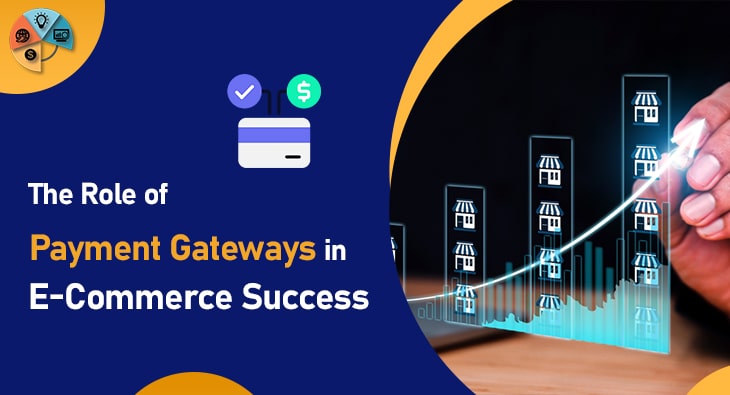In the fast-paced world of online shopping, the importance of seamless transactions cannot be overstated. Payment gateways play a crucial role in ensuring that e-commerce businesses can process payments efficiently and securely. These digital services act as the intermediary between customers and merchants, facilitating the transfer of payment information while safeguarding sensitive data.
By integrating robust E-Commerce payment solutions, businesses can enhance customer trust and reduce cart abandonment rates. A reliable payment gateway not only streamlines the checkout process but also supports various payment methods, catering to diverse customer preferences. As e-commerce continues to grow, understanding the vital function of payment gateways is essential for any online retailer aiming for success and customer satisfaction in a competitive market.
Understanding the Basics of Payment Gateways in E-Commerce
Payment gateways serve as the technological backbone of any e-commerce transaction. At their core, they work to authorize and process payments made through various payment methods, including credit cards, debit cards, and digital wallets.
When a customer makes a purchase, the payment gateway encrypts the transaction details and securely transfers them to the acquiring bank. The bank then communicates with the customer’s card issuer to verify and approve the transaction. Once approved, the payment gateway facilitates the transfer of funds from the customer’s account to the merchant’s account.
Beyond simply processing payments, payment gateways also offer additional functionalities such as fraud detection and prevention, recurring billing for subscription-based services, and detailed transaction reporting. Many modern gateways are equipped with advanced encryption and tokenization technologies, adding extra layers of security to protect sensitive customer information. They are also designed to comply with industry standards such as the Payment Card Industry Data Security Standard (PCI DSS), ensuring that all transactions meet stringent security requirements.
Incorporating a reliable payment gateway into an e-commerce platform not only enhances operational efficiency but also provides customers with a seamless and secure shopping experience, thereby fostering greater customer satisfaction and loyalty.
Some Related Blogs
- How Payment Processing Fees Affect Small Businesses
- Evolution of Payment Technologies | Merchant Stronghold
- How to Set Up a Merchant Account for Your Cleaning Service
- How To Start an Online Cigar Business
Enhancing Security and Building Customer Trust
Payment gateways are indispensable for maintaining robust security in e-commerce transactions, significantly contributing to customer trust. By employing cutting-edge encryption methods, they ensure that sensitive payment information is transmitted securely, preventing unauthorized access.
Features like tokenization replace sensitive data with unique identifiers, adding another layer of protection against data breaches. Additionally, many payment gateways offer advanced fraud detection systems that monitor transactions in real-time, identifying and flagging suspicious activities.
Compliance with industry standards such as PCI DSS further reinforces the trustworthiness of e-commerce platforms, reassuring customers that their payment data is handled with the utmost care. The secure handling of transactions not only prevents financial loss but also enhances the overall customer experience, encouraging repeat business.
By prioritizing security through the integration of sophisticated payment gateways, e-commerce businesses can build a solid reputation, fostering long-term customer relationships based on trust and reliability.
Improving User Experience and Reducing Cart Abandonment
A seamless checkout process is critical for enhancing user experience and minimizing cart abandonment in e-commerce. Payment gateways contribute significantly by providing a streamlined, user-friendly interface that simplifies the payment process. They support various payment methods, allowing customers to choose their preferred option, whether it’s credit cards, digital wallets, or other methods. This flexibility caters to a broader audience, reducing the likelihood of customers abandoning their carts due to limited payment options.
Additionally, payment gateways often feature auto-fill capabilities for returning customers, reducing the time and effort required to complete a purchase. They also offer responsive designs that ensure the checkout process is smooth and intuitive across different devices, from desktops to mobile phones. Real-time transaction processing further enhances user experience by providing immediate confirmation of payments, eliminating uncertainty and enhancing customer satisfaction.
Moreover, some advanced payment gateways provide one-click payment options, which significantly speed up the checkout process for returning users. By optimizing the payment experience, e-commerce businesses can effectively reduce cart abandonment rates, ultimately driving higher conversion rates and increased sales.
Supporting Global E-Commerce Through Multiple Currency Options
For e-commerce businesses aiming to expand globally, supporting multiple currencies is crucial. Payment gateways play an integral role in this by enabling transactions in various currencies, which can significantly enhance the shopping experience for international customers. When customers can pay in their native currency, it eliminates the need for currency conversion, making the process more transparent and convenient. This feature can also help reduce the uncertainty and potential hesitation associated with exchange rates and additional fees.

Many advanced payment gateways offer real-time currency conversion, allowing customers to view prices and complete transactions in their preferred currency. This capability not only simplifies the shopping experience but also boosts customer confidence and satisfaction. Additionally, some gateways provide dynamic currency conversion (DCC) options at the point of sale, giving customers the choice to pay in their home currency or the merchant’s currency.
By accommodating multiple currencies, e-commerce businesses can reach a broader audience and cater to the diverse needs of their global customer base. This functionality is essential for businesses that want to remain competitive in the global market, providing a seamless and inclusive shopping experience for users worldwide.
Integration with E-Commerce Platforms and Other Business Tools
Integration of payment gateways with e-commerce platforms and other business tools is essential for operational efficiency and enhanced functionality. Most payment gateways offer plug-and-play modules or APIs that seamlessly integrate with popular e-commerce platforms like Shopify, WooCommerce, and Magento. This integration allows for automatic synchronization of transaction data, ensuring accurate and up-to-date financial records.
Additionally, integrating payment gateways with Customer Relationship Management (CRM) systems and Enterprise Resource Planning (ERP) tools can provide comprehensive insights into customer behaviors and streamline inventory management. This level of integration facilitates personalized marketing strategies and improved customer service by allowing businesses to track and analyze purchase histories and preferences.
Furthermore, payment gateways can work in tandem with accounting software like QuickBooks or Xero, automating the reconciliation process and reducing manual entry errors. By connecting with various business tools, payment gateways help create a unified, efficient ecosystem that supports better decision-making and resource allocation.
These integrations not only save time and reduce operational complexities but also enable businesses to offer a seamless shopping experience, ultimately contributing to customer satisfaction and loyalty.
![]()
Email us anytime!
Email customer service 24/7
![]()
Call us anytime!
Reach customer care 24/7 at +1 (727) 330-3944



One thought on “The Role of Payment Gateways in E-Commerce Success”
Comments are closed.